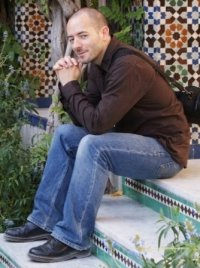Dogen's Genjo Koan: Section Seven
When dharma does not fill your whole body and mind, you think it is already sufficient. When dharma fills your body and mind, you understand that something is missing. For example, when you sail out in a boat to the middle of an ocean where no land is in sight, and view the four directions, the ocean looks circular, and does not look any other way. But the ocean is neither round nor square; its features are infinite in variety. It is like a palace. It is like a jewel. It only looks circular as far as you can see at that time. All things are like this.
Though there are many features in the dusty world and the world beyond conditions, you see and understand only what your eye of practice can reach. In order to learn the nature of the myriad things, you must know that although they may look round or square, the other features of oceans and mountains are infinite in variety; whole worlds are there. It is so not only around you, but also directly beneath your feet, or in a drop of water.
Here Dogen is talking about the relative or particular and it's relation to the absolute or universal.
There are many sayings from Patriarchs and Masters which appear to equate the particular with the universal.
For example:
A monk asked Joshu, "What is the meaning of Bodidharma's coming to China?" Joshu said, "The oak tree in the front garden."
And there are many Zen practitioners who see their own experienced reality as the whole of reality. However, according to Dogen this is an incomplete understanding. This is a self-centred or solipsistic position that takes one's relative, subjective perspective for the whole of reality. The full understanding of the dharma is that no one perspective is the whole picture. Even though object and subject are not divided, reality has an unlimited number of aspects or views depending on various viewpoints. All beings are the dharma.
Each entity in the world - his example is an ocean - has myriad appearances depending on the perspective - to a man in a boat it appears circular, to a sea-dwelling dragon it appears as a palace, to a deva in the heavens it appears as a small precious jewel. It has infinite appearances. No single perspective or appearance can be singled out as the real or objective entity. (This is not the same as the subjectivist theory that all opinions are equally valid or that believing something is the same as it being true.) Each appearance is according to the limitations of each viewpoint. All of our experiences are like this - we cannot see the whole of reality at any time. Reality includes all of these interdependent aspects of subject and object. And this is the case for everything we see and don't see.
To know the universal is to know the relativity and limitation of one's own perspective. Subject and object are not separate, yet the universe is not limited to a viewpoint of a single invidual, rather it is like a jewel with ever-changing facets or like Indra's net - a vast net with a shining, multi-faceted jewel at each vertex - each jewel reflecting every other.
Far away in the heavenly abode of the great god Indra, there is a wonderful net which has been hung by some cunning artificer in such a manner that it stretches out infintely in all directions. In accordance with the extravagant tastes of deities, the artificer has hung a single glittering jewel in each "eye" of the net, and since the net itself is infinite in dimension, the jewels are infinite in number. There hang the jewels, glittering like stars in the first magnitude, a wonderful sight to behold. If we now arbitrarily select one of these jewels for inspection and look closely at it, we will discover that in its polished surface there are reflected all the other jewels in the net, infinite in number. Not only that, but each of the jewels reflected in this one jewel is also reflecting all the other jewels, so that there is an infinite reflecting process occurring.- Hua-Yen Buddhism: The Jewel Net of Indra, Francis Harold Cook




I am reminded of John Doones poem, No man is an island entire unto himself..." We must, through observation, learn this truth and the truths that it points too.
ReplyDeleteI ask is the observer not also the observed?
Most interesting blog. My best.
Please forgive the typos in the above comment. I do know better. I had just taken off my glasses and rubbed my tired, long-suffering eyes, and forgot to check the copy before I sent it.
ReplyDelete